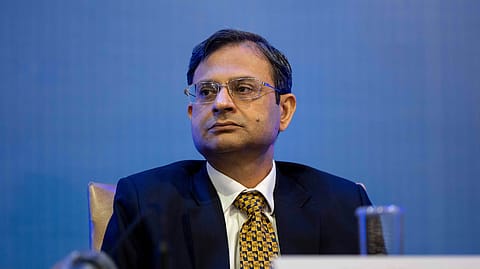RBI Governor flags risks in non-bank financial intermediaries
Newly appointed RBI chief Sanjay Malhotra says "stretched asset valuations and vulnerabilities" in less-regulated non-bank financial intermediaries pose risks.

Reserve Bank of India (RBI) Governor Sanjay Malhotra, in the central bank's latest Financial Stability Report, says "stretched asset valuations and vulnerabilities" in less-regulated non-bank financial intermediaries pose potential risks and that if these materialise, they could test the resilience of financial systems globally.
However, despite the uncertainties shrouding the global macro-financial ethos, the RBI Governor says the prospects for the Indian economy are expected to improve after the slowdown in the pace of economic activity in the first half of 2024-25. "Consumer and business confidence for the year ahead remain high and the investment scenario is brighter as corporations step into 2025 with robust balance sheets and high profitability."
The newly appointed RBI Governor says even as near-term risks to financial stability appear to be receding, the national financial regulators and supervisors across the globe remain on guard, scarred by the lessons drawn from experiences of black swan events such as the global financial crisis and the pandemic as well as from episodic visitations of financial market volatility.
Additionally, he says they are maintaining their focus on strengthening the financial institutions, while collaborating with international standard-setting bodies to deepen regulatory reforms, especially in areas of possible vulnerabilities in the global financial system.
Malhotra says as the year 2024 draws to a close and a new year dawns, the global economy exhibits resilience in the face of formidable headwinds from political and economic policy uncertainty, persisting conflicts and an environment of fragmenting international trade and tariffs. "Brightening the global prospects is the likelihood that the decline in inflation will continue and align with targets during the year ahead, allowing purchasing power to recover."
He says as monetary policy gains headroom to further support economic activity, financial conditions can be expected to remain easy and contribute to an improvement in the trajectory of global GDP from a prolonged phase of low growth. "Robust labour market and sound financial system too provide congenial conditions for this turnaround. The medium-term outlook, however, remains challenging, with downside risks from possible intensification of geopolitical conflicts, sporadic financial market turmoil, extreme climate events and rising indebtedness."
Financial sector regulators in India, too, are intensifying reforms and sharpening their surveillance against the backdrop of the soundness of the financial system bolstered by robust earnings, low levels of impaired assets and strong capital buffers, as the RBI's report highlights. "Stress test results reveal that capital levels of the banking system as well as of the non-banking financial companies (NBFCs) sector will remain well above the regulatory minimum even under adverse stress scenarios," asserts Malhotra.
Recommended Stories
India's focus -- as it strives to preserve financial stability to support a higher growth path -- remains steadfast on maintaining the stability of financial institutions and, more broadly, systemic stability, says Malhotra. "We remain committed to developing a modern financial system that is customer-centric, technologically leveraged and financially inclusive."